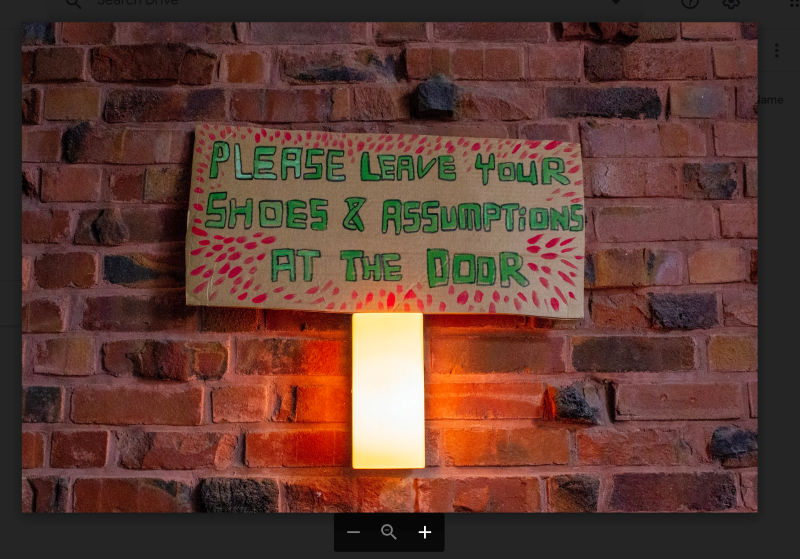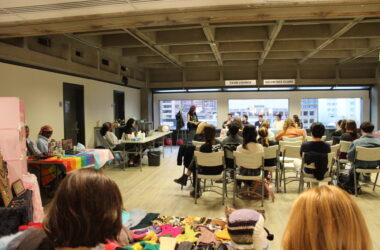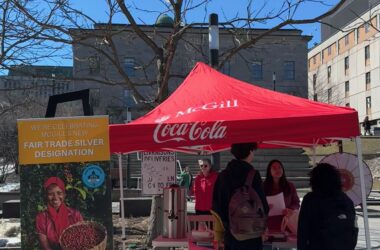Throughout the year, McGill and Milton-Parc community members can be found at the ECOLE house, located at 3559 rue University, working to advance social and environmental sustainability through a range of groups and projects. Originally called Alternative University, ECOLE was born out of the 2012 Quebec student movement, wherein students protested tuition increases and advocated for a place outside of McGill to learn, exchange ideas, and create. Today, ECOLE is a hub where students groups related to social or environmental sustainability can host events on their own or in partnership with ECOLE.
“[ECOLE serves as a] community organizing and collective living bootcamp,” Jesse Grindler, a coordinator at ECOLE, said.
ECOLE receives funding from the Students’ Society of McGill University (SSMU) and works closely with the organization alongside the broader Milton-Parc community. Sarah Mitchell, U4 Agriculture and Environmental Engineering and an ECOLE facilitator, emphasized its importance in working within the community.
“[ECOLE focuses on] bridging the gap between McGill students and the Milton-Parc community,” Mitchell said.
The Milton-Parc community has both the greatest concentration of collectives in North America and a history of activism for social change that ECOLE enhances. The first facilitator training revolved around the history of Milton-Parc, beyond being the “McGill Ghetto,” and facilitators learned about the history of citizen’s movements in preventing big industry from moving to the Milton-Parc community. ECOLE supports SSMU’s projects, such as Trash 2 Treasure, which allows Milton-Parc residents to donate their belongings during move-out week and reduces waste in the neighbourhood.
As an ECOLE facilitator, Mitchell is one of 10 upper-year McGill students who live at ECOLE. These students learn, live, and work together, creating an environment where sustainability is ingrained in everyday life.
In addition to their household responsibilities, facilitators carry out Applied Student Research (ASR) projects to implement more sustainable practices in the house and in McGill student life. Mitchell describes her life in the house as being energizing, though balancing schoolwork with a separate, nonacademic focus is challenging.
“[Life at ECOLE is] you have school, your club, and your house all in the same place, but your club is like three different clubs,” Mitchell said.
Two coordinators, including Grindler, support the facilitators and the house as a whole, doing the necessary behind-the-scenes work. A board made up of representatives from all of the different stakeholders in the community also directs the vision of ECOLE. The board consists of an ECOLE facilitator, a SSMU Legislative Councilor, McGill students, McGill staff and faculty members, as well as additional Montreal community members.
A collective will be launched in January that will allow people living outside ECOLE to get involved in leadership. The collective is just one example of how ECOLE is questioning their previous practices and reorienting for the future.
“[ECOLE is now] in the phase of seeing how it will be sustained [in the] long term,” Mitchell explained. “This means […] maintaining their flow year after year even when facilitators change and maintaining an institutional memory.”
Even the ASR projects are being reshaped to focus on smaller, more incremental changes rather than tackling more daunting issues. For example, Mitchell focused in on bulk shopping for the house and pieced together shopping bags from spare pieces of cloth. Additionally, Mitchell is working on upcycling an old bike to generate electricity.
On Nov. 27, ECOLE’s Annual General Meeting, which Grindler described as an accountability tool for the nonprofit, will take place. The meeting will be open to the public and is a great chance for students to learn about ECOLE and support its future. ECOLE’s biweekly Sunday potlucks and Thursday afternoon coffeehouses, organized with the SSMU Environment Committee, are another chance to get involved.
Despite its renewed focus on its future, ECOLE still centres on motivated stakeholders coming together to learn from each other and advocate for sustainability.







